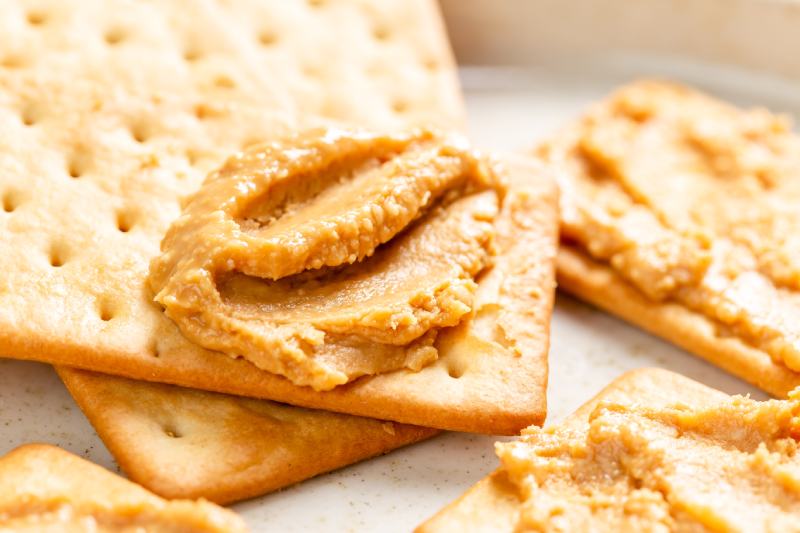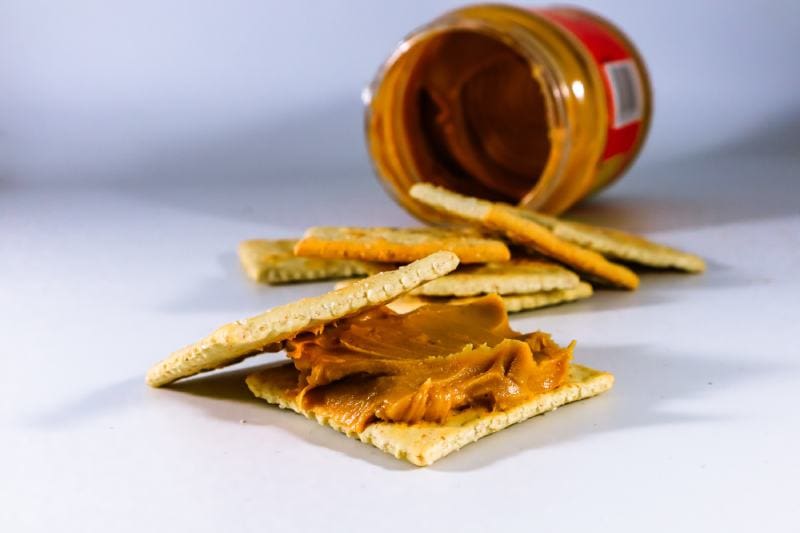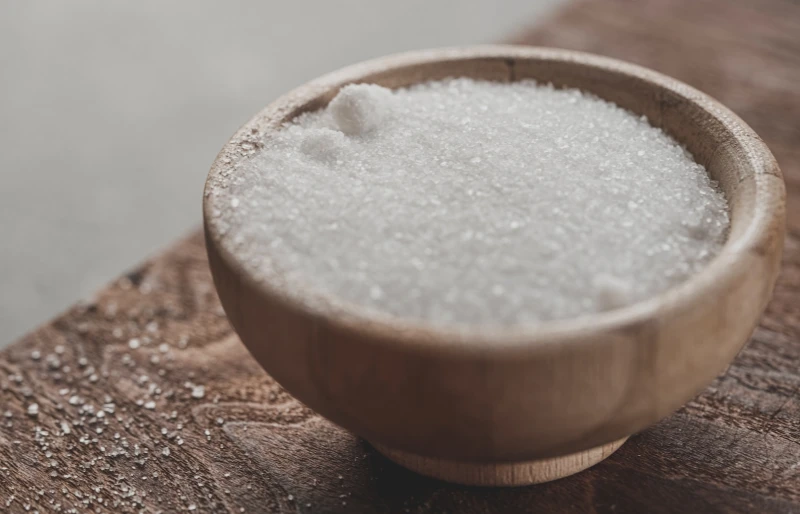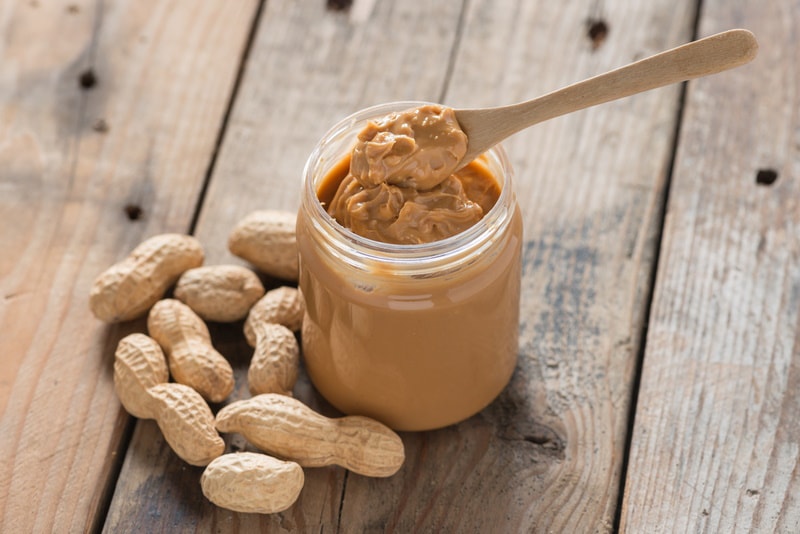
Peanut butter is a staple of many homes across the US. It’s also made its way into delicious crackers, but these treats are best only served to your human friends. The high fat, salt, and sugar levels in premade peanut butter crackers are unhealthy for your dog. While peanut butter crackers aren’t ideal for your dog, dog-friendly alternatives can be an excellent treat!

Why Shouldn’t My Dog Eat Peanut Butter Crackers?

Peanut butter crackers come in many forms, but the store-bought variety can contain harmful ingredients. Peanut butter crackers are often full of fat and sugar, which can irritate a dog’s digestive system.
Fat
A high-fat diet can cause pancreatitis in dogs, which is a potentially life-threatening condition that can lead to vomiting, pain, and other gastrointestinal problems. If your dog has a history of pancreatitis or pancreatic problems, it’s vital not to give them foods high in fat (including peanut butter crackers).
Sugar
Too much sugar can also be an issue since dogs need fewer calories daily than humans. Excess sugar and calories can cause weight gain and obesity in dogs, which causes its own problems! Obesity strains the joints and the cardiovascular system and can raise blood pressure. Being overweight can reduce a dog’s lifespan, so it’s best to avoid high-calorie foods like peanut butter crackers altogether!

Xylitol
Another ingredient that’s dangerous for dogs and which can sometimes be found in peanut butter crackers is xylitol. Xylitol is incredibly toxic for dogs, and only a small amount can be fatal. Xylitol is a sugar substitute often found in lower-calorie food, and it causes hypoglycemia, liver failure, seizures, and death in dogs. Research has shown that even small amounts of xylitol can prove fatal, so be very wary of any products (including peanut butter or peanut butter crackers!) that contain it.

Is Peanut Butter Bad for Dogs?
Peanut butter on its own isn’t inherently bad for dogs. A small amount of pet-safe peanut butter can be beneficial to your dog! Peanut butter is full of proteins and vitamins, including vitamins B and E. A small amount of beneficial fat is also a good thing, and peanut butter in moderation can be a great training aid, as most dogs love it! However, too much of a good thing is always bad, and the negative effects of too much fat can still apply even to pet-friendly peanut butter.
Are Some Peanut Butter Crackers OK for Dogs To Eat?
Some variants of peanut butter crackers are safer for dogs to eat. Homemade crackers are a better choice since you know the amount of fat and other ingredients that have gone into it. Plus, you can ensure that no xylitol is included in the recipe!
Peanut butter treats made specifically for dogs should be safe for dogs to eat, but they’re usually high in calories and should count towards your dog’s daily treat allowance. Remember, any peanut butter crackers you give your dog will still be high in fat; always check with your veterinarian before giving your dog any new foods, especially if they have health problems such as pancreatitis.

What Should I Do if My Dog Eats Peanut Butter Crackers?
If your dog manages to get into a stash of peanut butter cookies, what to do next will depend on which ingredients they contain. If the crackers don’t contain xylitol, your dog might get an upset stomach if they eat too many or experience diarrhea or vomiting.
If the peanut butter contains xylitol, you must take your dog to the vet immediately. Xylitol is very toxic, and the effects of the hypoglycemia it causes can show in as little as 30 minutes. Bring the peanut butter cracker packaging with you to show to the veterinarian, and mention how many crackers your dog consumed.
The treatment for xylitol poisoning includes a full exam and possibly making your pup vomit to clear the toxin from their system. Your dog will be closely monitored to evaluate their vital stats, and an intravenous dextrose treatment can help combat hypoglycemia.

Final Thoughts
Whether homemade or store-bought, peanut butter crackers are a staple in many homes. Almost all dogs love peanut butter, and a peanut butter cracker can sometimes prove too tempting. Homemade peanut butter crackers are the least harmful choice for dogs and can provide some health benefits, but any that are store-bought or made for humans should be avoided.
Peanut butter crackers often contain too much sugar and fat, and some contain xylitol, which is very toxic to dogs. Peanut butter crackers made for dogs are less harmful but should still only be given occasionally as a treat.
Featured Image Credit: Andriana Syvanych, Shutterstock


